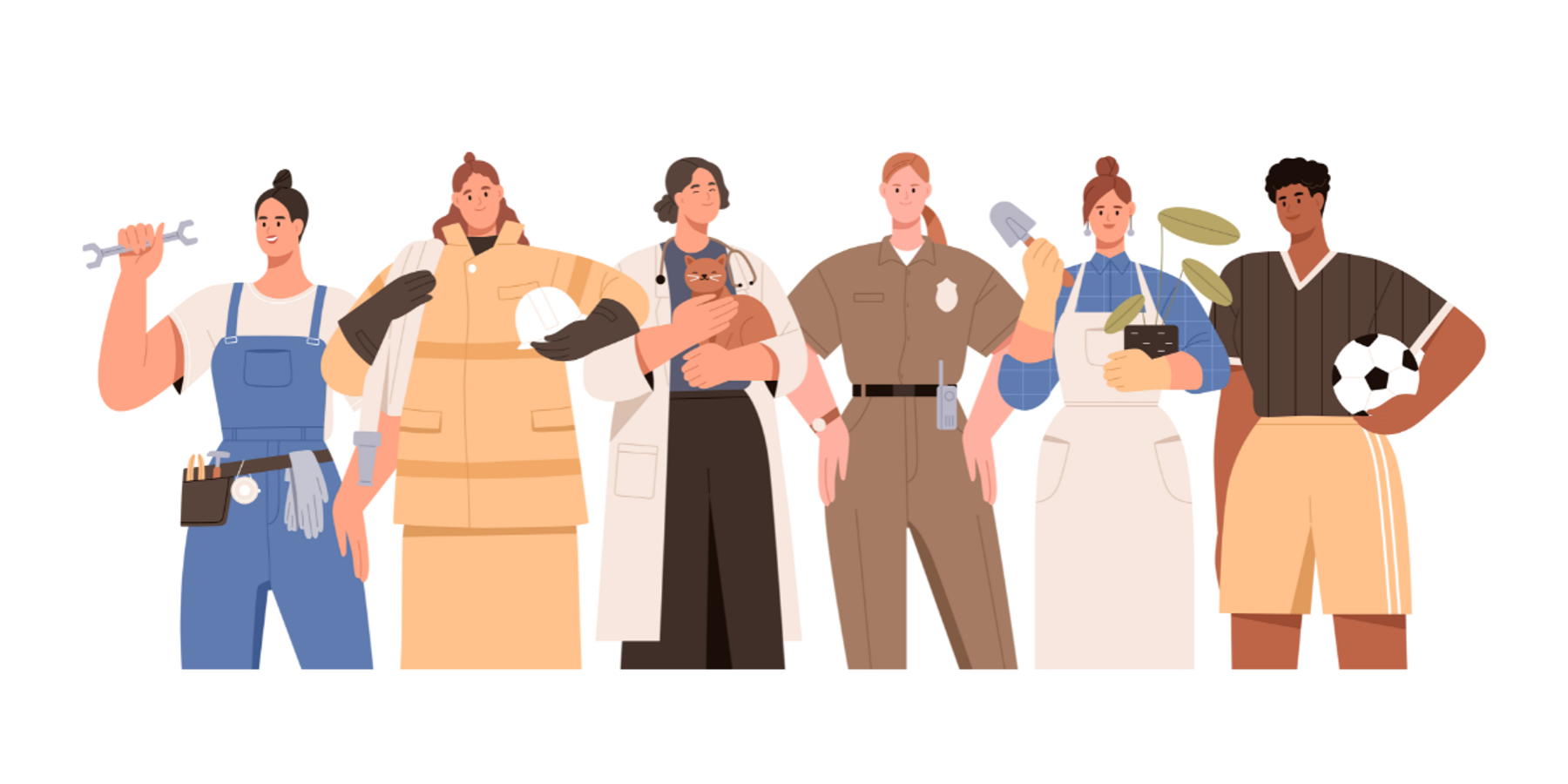Considering a new job? Maybe…something that can be done remotely? And it has to be flexible…and you’d like to contribute to business functions. Great news! Customer service checks all the boxes. Every business needs someone to solve their customers’ problems, so customer service jobs are never going out of style.
We hear you – businesses are increasingly using chatbots, AI assistants, and software that keeps them accountable 24/7. So why exactly is customer service a good career path in 2024?
Let’s start, as with most things, at the beginning.
What is customer service?
All businesses need customers, and it’s subsequently important to keep the customer happy. This is the job that largely falls on the customer service team. This can expand far past manning a phone helpline, and for different businesses, customer service can mean different things. For a retail store, a sales associate could handle customer service. For a B2B SaaS company, it could be the account manager assisting the sales team.
For larger companies, it could be a full-blown department with whole teams of customer support agents. Some businesses additionally hire virtual agents, assistants, and receptionists to better attend to the needs of their customers.
In short, all efforts made to help the consumer better utilize a business’ offerings falls under customer service. So let’s next discuss customer service as a career path.
The first question isn’t actually ‘is customer service a good career path’, but rather ‘is customer service a good career path for YOU?’
Let’s evaluate!
What skills do I need to work in customer service?
At the core of any customer service career is a ton of people skills. Your job largely entails helping consumers understand the business better and connecting with it deeper. You’re responsible for creating a happy consumer experience. Here are some soft skills you would need for that:
- Empathy
- Clear communication
- Listening skills
- Positive disposition
- Critical and analytical thinking
- Patience
- Time management (you’ll be handling multiple issues throughout the day!)
- Detail-oriented
- Teamwork (customer service reps. have to often relay the message to different departments)
- Willingness to help!
Imagine someone who is amazing with people, maybe an extrovert who feels recharged after a good conversation. This is probably a great job for them!
(If this is sounding like the opposite of a good time - try some other gigs! Here are more flexible remote jobs you can pick from!)
However, if you do see yourself fulfilling even part of the above list, let’s dive next into the hard skills you might need.
These are a little tougher to outline, because hard skills are usually very specific to the job you take. For a retail manager, knowing how to use the POS the store uses is a hard skill. For a customer support crew member, a customer service career means the ability to use software solutions to manage emails, calls, and follow-ups.
Customer service folks also need to have an in-depth understanding of the business they are handling. For example, a financial firm’s customer service representative would need to be aware of the business offerings and a running list of general FAQs that a consumer may have.
If you have a good handle on the above soft skills and feel confident learning new technology or industries, customer service is looking like a good fit so far!
What are the pros and cons of customer service?
Pros of choosing customer service as a career path
1. Wide variety of entry-level positions
Customer service jobs require you to possess interpersonal skills and a decent knowledge of some of the most common electronic devices and software that we use, but any information that is particularly required for a business is made available once you onboard. Regardless of your experience level, you’ll most likely undergo some rigorous training on the business offerings. The good news is this means that customer service is a job that can be done by most people and can be very approachable for career transitions or returning to the work-force.
2. Work with diverse people
Fellow employees aside, you’ll be dealing with a variety of customers! One customer could be from Ohio, another from Texas. (In fact, depending on the company, the third could be from Paris, who knows?) What makes this an exciting job is solving a wide variety of problems from a wide variety of sources. This is an opportunity to get to understand people better, plus you’ll get a completely different vantage point of the product/services than the rest of the team!
3. An opportunity to help
It’s pretty human to feel satisfied when you can help someone with their problem. A sigh of relief, a small chuckle, a good review: your impact is tangible in customer services. You’ll get the chance to end each day feeling like you made a difference.
4. Stability & demand
Consumers are always going to have problems and queries. Businesses are always going to need someone to address them. Despite technological advancements, there’s nothing that reassures quite like the human touch. There’s a reason that 88% of customers still insist on speaking with a human agent!
This human advantage is a business function that’s sought-out in every industry. From fast cars to fast food, luxury to commonplace; any business wanting to grow and stay relevant will always need to be in touch with its audience.
Cons of choosing customer service as a career path
1. Rude customers
Chances are that if someone is calling a business, they’re probably already upset and/or frustrated. Maybe they’ve gone through multiple automated options already, and after another wait, a human has finally responded. Impatience, frustration, and distress — expect it all. It might be tough, but you’ll still have to maintain your composure and help them with their questions.
2. Task juggling
You will probably be dealing with multiple tickets at a time, and some cases, due to their complications, might end up taking over your day, leaving you with a less productive workday. Even the best of time managers will have to learn to keep a closer watch on the clock and make sure they’re directing their attention accordingly.
3. Curious cases
What if there is no clear resolution? What if the answer is ‘please wait while our development team patches this bug’ and you can’t help the customer? Let’s not mince words – this is annoying, and it can cause some loss of confidence. It’s important to remember that as a customer service agent, your job is to service the consumer to your best ability and direct them to the right person whenever needed.
4. Work/life balance challenges
Customer service can have weird hours. If a company wants 24/7 support, this means someone is working overnight. Sometimes you might be on-call at awkward hours, and this means more stressful work hours and vigilance, which can sometimes lead to faster burnout. It’s important to be mindful of your work/life balance when working in customer service, especially if you are the sort to get hyper-invested in your customers’ happiness!
Customer service pay
Despite being an entry-level job, customer service jobs offer decent pay. Indeed reports $18 per hour is the current average pay for a customer service agent, above minimum wage in most U.S. states.
Salaries can go up to $75,000 annually, typically after 5-8 years of experience in a customer service career. There are usually advancement opportunities into management or quality assurance available as-well! (Pro-tip: ask about career pathing in your interview!)
Ready to give it a try? Head on to PowerToFly's job board to browse loads of job listings – your start in customer service is just a click away!



